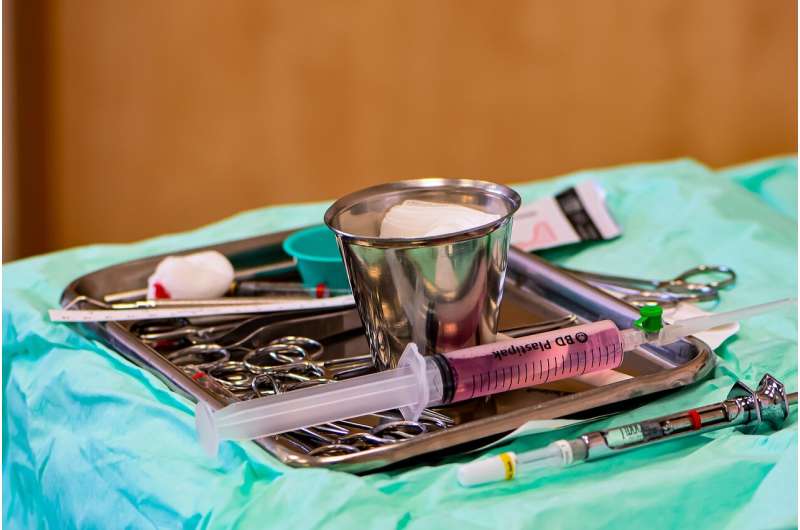This article has been reviewed according to Science X's editorial process and policies. Editors have highlighted the following attributes while ensuring the content's credibility:
fact-checked
peer-reviewed publication
trusted source
proofread
Disinfectants and antiseptics may be increasing the antibiotic resistance of hospital-acquired superbug

Low levels of commonly used biocides, such as disinfectants and antiseptics, may increase antibiotic tolerance in Acinetobacter baumannii, a multi-drug resistant, hospital-acquired pathogen that causes serious wound, bloodstream and lung infections. This bacterium is known to cause infections in the blood, urinary tract and lungs (pneumonia), or in wounds in other parts of the body.
The findings, published in Nature Microbiology, suggest that residual levels of biocides might exacerbate antibiotic tolerance and resistance.
Biocides—such as bleach, alcohol and silver nitrate—are chemicals commonly used in households, hospitals and many other environments to kill bacteria and other microorganisms. However, currently little is known about how they kill bacteria. There have been concerns about whether widespread and unregulated use could contribute to the development of antibiotic resistance in important human pathogens, such as A. baumannii.
Ian Paulsen, Amy Cain and colleagues used genetic screening to look for bacterial genes that either increase or decrease A. baumannii sensitivity to ten clinically relevant biocides. They found that certain biocides, including chlorhexidine and benzalkonium, affected fundamental bacterial processes and can act inside the cell rather than predominantly targeting the cell surface, as suggested in previous research.
A. baumannii was found to respond to low levels of these toxic compounds, specifically chlorhexidine and benzalkonium, and these changes could help it survive and grow when exposed to multiple different types of antibiotics.
The authors conclude that low levels of biocides remaining in the environment due to their widespread use might promote antibiotic tolerance and resistance in pathogenic bacteria.
More information: Liping Li et al, Systematic analyses identify modes of action of ten clinically relevant biocides and antibiotic antagonism in Acinetobacter baumannii, Nature Microbiology (2023). DOI: 10.1038/s41564-023-01474-z




















